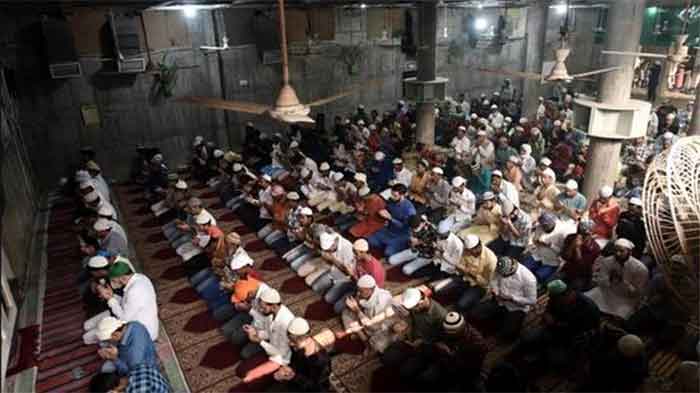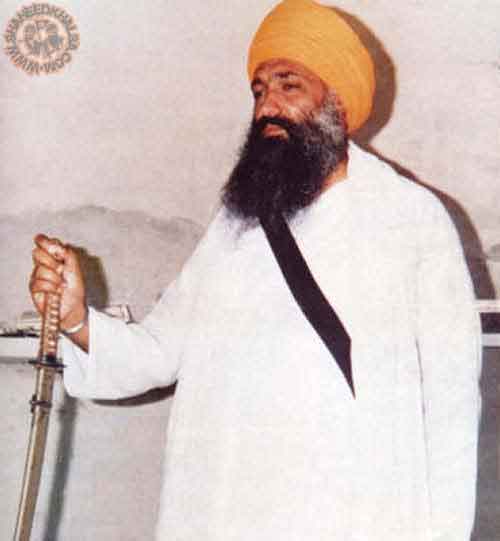
Tensions have been rising in Gurugram, just outside of Delhi for some weeks on the matter of Muslims offering Namaz in the open in public spaces, sometimes blocking traffic. On the face of it, the whole business of offering prayers on the streets appears to be a needless provocation until it comes to light that there are just not enough mosques for the Muslim population that lives in the area. Whether the Muslim community could have done things differently and acted creatively like offering Namaz in private homes is a separate question. Among Christians who have a similar problem, the problem has been resolved by renting spaces like school classrooms or community meeting halls, or even private homes.
But this piece is not about what the Muslims could have done but the response from the Sikhs in terms of opening up their Gurudwaras for the Muslims to offer Namaz in the various properties that they have in the area. The response of the Sikhs is particularly noteworthy because of the complicated relationship that the Sikhs, particularly their Gurus had with Muslim rulers. According to legend Babur and Guru Nanak who were contemporary met and Guru Nanak was even briefly imprisoned by Babar in Saidpur (now in Pakistan around) around 1506. The meeting is obliquely referred to in a hymn included in the Guru Granth Sahib.
For much of its early history, the Sikh community enjoyed relative peace and tolerance. Akbar who reigned from 1555 to 1605 and Guru Ram Das (1534–1581), the fourth guru, seemed to have developed a respectful relationship. According to legend, it was Akbar who granted Guru Ram Das the land and the small lake which eventually became Amritsar, the spiritual home of the Sikh tradition. However, Akbar’s successor Jahangir moved away from the religious tolerance of Akbar and aggressively confronted the Sikhs. This was during the reign of the fifth guru, Guru Arjan. Guru Arjan’s martyrdom at the hands of Emperor Jahangir in 1606 deeply affected the Sikh community. It set the scene for Sikh conflict with the Mughal government for many generations. The 9th Guru Tegh Bahadur was publicly beheaded in Delhi by the order of Aurangzeb in 1675. And of course, Guru Gobind Singh was assassinated too.
But a sense of victimhood seems not to have captured the spirit of the community. Of course, the Mughals were not the only perpetrators and the tension between the Gurus and the rulers in the later years of the Mughal rule was more political than religious as the Sikhs grew militarily stronger. During the partition time in 1947 too, the Sikhs were displaced in large numbers ( as of course were others too) and then we all know about the much more recent Anti-Sikh riots post-Indira Gandhi’s assassination. The Khalistan movement which was on the horizon all along was crusted successfully but while numbers will never be available, it is widely known that innocents were as much killed and tortured as were actual terrorists. But none of those seem to have left any permanent scars on the traditionally generous community. What makes them so uncharacteristically generous? How did Sikhs become the Good Samaritans of the world? Most religions tell their followers to help others and to do good – but how have the Sikhs gone from talking to doing so effectively?
Think of any scene of a disaster and you’ll find Sikh volunteers rallying to the site, feeding migrants, helping riot victims, and rebuilding homes after earthquakes. From the Rohingya crisis in Myanmar to the Paris terror attacks, the farmers’ marches in India to the protests in America against George Floyd’s killing, people from this 30 million-strong community worldwide have made it a tradition to help complete strangers in their darkest moments. Through the pandemic, they reached new heights.
Of course we know that Guru Nanak preached that selfless service (seva as it is called) and hard work are as important as prayer. Sikh temples thus aren’t just places of worship – they are feeding centres and homeless shelters and community centres, a place to call home if you have none. By making seva the song of the Sikhs, Guru Nanak instilled service in their DNA.
Does that mean all Sikhs are joyful and enjoy giving? Certainly not. The community has seen excesses, patriarchy, crime – and these problems are as widespread among Sikhs as their virtues are. For instance, drug abuse and drug-related crimes are far higher in Punjab compared to other Indian states according to The Punjab Opioid Dependence Survey conducted in 2015.
While Sikh teachings strongly emphasise individual responsibility for the alleviation of poverty and distress, their main emphasis is on prevention, or the creation of a fair, just, and more responsible world order. The Gurus taught that we are all equal members of a common family, and as such all people should have the same rights, responsibilities, and opportunities. Today, more than 300 years after the time of the Gurus, we live still live in a world of genocide and ‘ethnic cleansing. Although there has been some improvement, discrimination against women continues. We increasingly talk in an academic sort of way of our one human family but throw up our hands in horror when, in our increasingly global economy, people move home and country to better their lot and that of their families. The message of Sikhism is that giving of charity to the less fortunate is fine, but we should also be prepared to give up something of our privileged status and standard of living, often obtained at the expense of the less fortunate.
It’s hard to be selfless. To be thoughtful, empathetic, and generous. It’s easy to write about these qualities, to preach them. Try to practise them on a daily basis and you’ll realise it’s harder than taking part in the Ironman triathlon. As I conclude this piece, the news has just come in that the Gurudwaras are under pressure from “ some elements” to not offer their premises for Namaz, and sensing the direction of the wind, the Muslims themselves have declined their offer even as a Hindu businessman offered his empty shop premises for Namaz in small batches. But that does not negate the fact that the Sikh characteristic of selfless Sewa is still worthy of being praised and talked about.
Dr. Shantanu Dutta, a former Air Force doctor is now serving in the NGO sector for the last few decades.













































